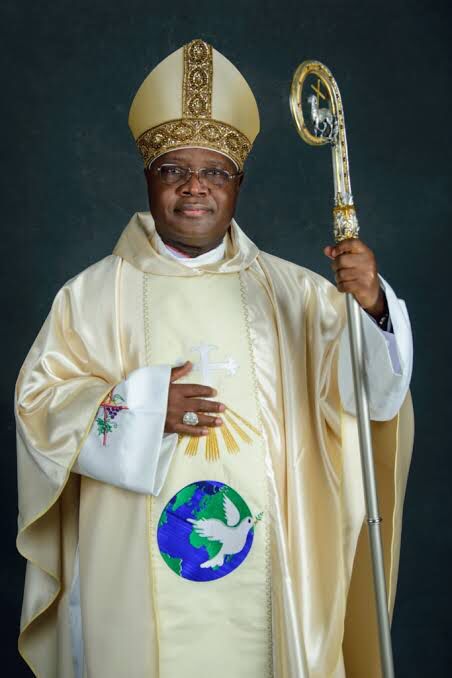Russian President Vladimir Putin signed at least a dozen agreements with his Vietnamese counterpart on Thursday, during a state visit as Moscow seeks to strengthen ties in Asia to offset its growing ties to the long-term supply of fossil fuels. of Vietnam, including natural gas. international isolation of its military operations in Ukraine.
Putin and President To Lam agreed to continue cooperation in the fields of education, science and technology, oil and gas production, clean energy and healthcare. The two countries also agreed to work on a roadmap for a nuclear science and technology center in Vietnam.
Of the 12 publicly announced deals, none were overtly defense-related. But Lam said there are other agreements that have not been made public.
After their talks, Putin said the two countries are interested in “creating a reliable security architecture” in the Asia-Pacific region, with no room for “closed military and political blocs.” Lam added that both Russia and Vietnam want to “cooperate on defense and security to address non-traditional security challenges.”
Nigel Gould-Davies, a senior expert on Russia and Eurasia, said the agreements between Russia and Vietnam were not as important as those signed by Putin with North Korean leader Kim Jong-un the previous day, promising mutual aid in the event of an attack. . . International Institute for Strategic Studies in London and former British ambassador to Belarus.
Nguyen Hak Giang, an analyst at the ISEAS-Yusuf Isaac Institute in Singapore, said Putin’s recent visits to China and now North Korea and Vietnam are an attempt to “cut international isolation.”
Giang said Russia is important to Vietnam for two reasons: It is the Southeast Asian country’s largest supplier of military equipment, and Russia’s oil production technologies help protect Vietnam’s sovereignty claims in the disputed South China Sea. .
Vietnam has also granted Russian state oil company Zarubezhneft a license to develop underwater fields off its southeastern coast.
Putin arrived in Hanoi from North Korea on Thursday morning after signing a strategic pact with Kim, as the two countries face heightened tensions with the West and could mark their strongest ties since the end of the Cold War.
According to Vietnam’s official news agency, Putin also met in Hanoi with Vietnam’s most powerful politician, Communist Party General Secretary Nguyen Phu Trong, and Prime Minister Pham Minh Chinh.
On Thursday afternoon, Putin headed to Vietnam’s presidential palace, where he was greeted by schoolchildren waving Russian and Vietnamese flags.
Much has changed since Putin’s last visit to Vietnam in 2017. Russia is currently facing a series of US-led sanctions over its aggression in Ukraine. In 2023, the International Criminal Court in The Hague issued an arrest warrant for Putin on charges of war crimes, making international travel difficult for the Russian leader. The Kremlin called this order “invalid” and stressed that Moscow does not recognize the jurisdiction of the court.
Putin’s visit prompted a harsh rebuke from the US embassy in Vietnam, which said that “no country should give Putin a platform to promote his war of aggression and allow him to normalize his atrocities.” If Putin is allowed to travel freely, he “could normalize Russia’s flagrant violation of international law,” according to the statement.
The United States and its allies have expressed growing concern about a possible arms deal in which North Korea would provide Russia with munitions needed in Ukraine in exchange for economic aid and technology transfers, raising the threat of nuclear weapons programs and Kim missiles. .
Both countries deny accusations that the arms transfer would violate multiple UN Security Council sanctions previously approved by Russia.
Ridzwan Rahmat, an analyst at Singapore-based defense intelligence firm Janes, said Vietnam was unlikely to supply Russia with a significant amount of weapons and jeopardize the progress it has made with NATO members on military equipment, particularly with the United States.
“I imagine Vietnam does not want to risk or incur the wrath of Western countries by supplying the Russians,” Rahmat said.
Hanoi and Moscow have maintained diplomatic relations since 1950, and this year marks the 30th anniversary of the agreement to restore “friendly relations” between Vietnam and Russia. Prashant Parameswaran, a fellow at the Wilson Center’s Asia Program, said Vietnam is “strengthening” the relationship even as it diversifies with new partners.
Evidence of the long relationship and its influence can be seen in Vietnamese cities such as the capital, where many Soviet-style apartment buildings are now sparsely populated by skyscrapers. A statue of Vladimir Lenin, the founder of the Soviet Union, stands in a park where children ride skateboards every night. Many of the top leaders of the Communist Party of Vietnam studied at Soviet universities, including Party Chairman Trong.
In an article written for Nhan Dan, the official newspaper of the Communist Party of Vietnam, Putin thanked “Vietnamese friends for their balanced position on the Ukraine crisis” and praised the country as a “firm supporter of a just world order” based in international standards. law. . equality and non-geopolitical interference.
Vietnam’s pragmatic policy of “bamboo diplomacy” – a phrase coined by Trong to refer to the power’s flexibility, bending but not breaking with the shifting winds of global geopolitics – is increasingly being tested.
Vietnam, a manufacturing powerhouse and major player in global supply chains, has adopted both President Biden and China’s leader Xi Jinping in 2023.
Putin’s visit is important for Hanoi on a diplomatic level, said Gould-Davis, the former ambassador.
“Maybe for Vietnam it is just to show that it is capable of maintaining this very marked balance of its bamboo diplomacy,” he said. “In one year they hosted the visit of the heads of state of the three most powerful countries in the world, which is very impressive.”
According to him, for Russia this trip is more focused on optics, because Moscow wants to attract and influence other countries, especially the countries of the so-called Global South.
“Since the beginning of the war, Putin has not been able to travel much or very far, and he has rarely traveled outside the countries of the former Soviet Union,” he said.
Vietnam was neutral in Russia’s attack on Ukraine. But neutrality becomes more difficult.
Parameswaran said Vietnam needs US support to advance its economic ambitions and diversify its defense ties. “He should carefully consider what he will do with Russia amid rising tensions between Washington and Moscow.”
Bilateral trade between Russia and Vietnam will reach $3.6 billion in 2023, compared to $171 billion with China and $111 billion with the United States.
Since the early 2000s, about 80% of Vietnam’s arms imports come from Russia. This has been declining over the years due to Vietnam’s efforts to diversify its supply chain. But it will take time to fully disengage from Russia, Giang said.
Andrew Goledzinovsky, Australia’s ambassador to Vietnam, wrote on media platform
“Vietnam always acts in the interests of Vietnam, not in the interests of anyone else,” he writes.
Ghosal writes for the Associated Press. AP writer David Rising in Bangkok contributed to this report.

